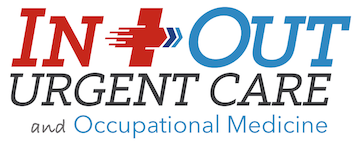Proper hydration is essential for maintaining optimal health, keeping your body functioning smoothly, and preventing numerous complications. Dehydration occurs when your body loses more fluids than it takes in and can result from numerous factors, ranging from inadequate water intake to illness. Detecting the signs of dehydration and addressing them promptly is crucial for preventing the condition from escalating into a serious medical issue.
This article will explore the causes and symptoms of dehydration, its potential dangers, and practical prevention and treatment options. Additionally, we will showcase our invaluable role in providing timely and effective care to patients experiencing dehydration and addressing their unique needs.
Understanding the importance of hydration and knowing how to prevent and manage dehydration effectively will empower you to safeguard your health and ensure optimal bodily function. With expert assistance from In & Out Urgent Care, you can trust that your hydration needs are prioritized and expertly addressed to help you maintain the highest level of health and wellness.
The Causes and Symptoms of Dehydration
Recognizing the causes and symptoms of dehydration is crucial for taking quick action to restore your body’s fluid balance. Common causes include:
1. Insufficient fluid intake: Failing to consume enough water throughout the day may lead to dehydration, particularly when engaging in physical activities or spending time in hot and humid environments.
2. Illness: Fever, vomiting, and diarrhea can cause rapid fluid loss, increasing the risk of dehydration.
3. Excessive sweating: Intense physical exercise, high temperatures, or certain medical conditions can lead to excessive sweating, causing dehydration if not managed properly.
Signs that you might be dehydrated include:
– Thirst
– Fatigue
– Dry mouth and throat
– Dizziness or lightheadedness
– Dark-colored urine
– Reduced urine output
– Headaches
Severe dehydration symptoms require immediate medical attention and may involve:
– Rapid heart rate
– Low blood pressure
– Sunken eyes
– Rapid breathing
– Confusion or irritability
– Weak or absent pulse
By understanding these signs, you can recognize when dehydration is impacting your health and seek timely medical assistance.
The Dangers of Dehydration
If left untreated, dehydration can have serious health consequences, including:
1. Electrolyte imbalances: Loss of essential minerals like sodium, potassium, and calcium can disrupt normal bodily functions, leading to muscle weakness, spasms, and seizures.
2. Kidney problems: Prolonged dehydration can cause kidney stones, urinary tract infections, and, in severe cases, kidney failure.
3. Low blood volume: Persistent fluid loss can reduce blood volume, resulting in inadequate blood flow to organs and the brain, potentially causing shock and brain damage.
Recognizing the dangers associated with dehydration reinforces the importance of maintaining proper hydration, especially during periods of heightened fluid loss.
Preventing Dehydration: Practical Tips for Staying Hydrated
Effective strategies for preventing dehydration and maintaining hydration levels include:
1. Prioritize fluid intake: Ensure you consume enough water throughout the day to match your body’s needs, paying special attention when engaging in physical activities or exposed to heat.
2. Monitor urine color: A pale yellow color indicates proper hydration, while darker shades suggest dehydration.
3. Eat water-rich foods: Integrate fruits and vegetables with high water content, such as watermelon, cucumber, and oranges, into your diet to supplement fluid intake.
4. Limit diuretic substances: Moderate your consumption of caffeine and alcohol, as they can increase fluid loss through diuresis.
Incorporating these preventive measures into your daily routine can significantly improve your ability to maintain optimal hydration levels and avoid dehydration.
Dehydration Treatment and the Role of In & Out Urgent Care
When experiencing dehydration symptoms, prompt action is necessary to restore fluid balance and prevent complications. We play a critical role in providing urgent care to patients suffering from dehydration in the New Orleans and North Shore regions:
1. Rehydration assessment: This involves a thorough evaluation of your symptoms, medical history, and level of dehydration to determine the appropriate treatment approach.
2. Fluid replacement: Oral rehydration solutions (ORS) may be administered to replenish lost fluids and electrolytes for mild to moderate dehydration. In severe cases, intravenous (IV) fluid therapy might be necessary.
3. Monitor progress: Our healthcare professionals will closely monitor your recovery and ensure proper rehydration is achieved.
4. Personalized guidance: Expert advice on prevention techniques, dietary changes, and lifestyle modifications to maintain adequate hydration levels in the future.
With our expertise, patients experiencing dehydration can access the appropriate care and receive guidance for preventing future episodes.
Conclusion
Maintaining proper hydration levels is vital for overall health and well-being, which is why recognizing and managing dehydration effectively is crucial. By understanding the causes, symptoms, and potential dangers of dehydration and implementing practical prevention techniques, you can protect your health and ensure your body receives the fluids it needs to function optimally.
In & Out Urgent Care is dedicated to providing exceptional care for patients experiencing dehydration in the New Orleans and North Shore regions. By partnering with our expert team of healthcare professionals, you can trust that your rehydration needs are addressed promptly and effectively, helping you restore balance to your body and safeguard your well-being with our urgent care in New Orleans, LA. Embrace a healthier, more hydrated future with our comprehensive and compassionate approach to dehydration care.

